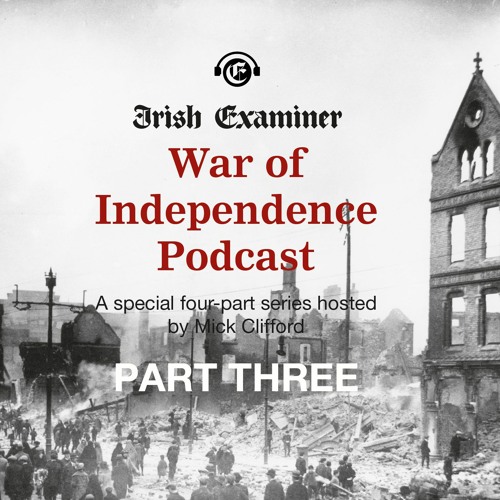In This Section
- Home
- Collections
- Atlas Resources for Schools
- Cork Fatality Register
- Mapping the Irish Revolution
- Mapping IRA Companies, July 1921-July 1922
- Mapping the Burning of Cork, 11-12 December 1920
- Martial Law, December 1920
- The IRA at War
- The Railway Workers’ Munitions Strike of 1920
- The Victory of Sinn Féin: The 1920 Local Elections
- The War of Words: Propaganda and Moral Force
- The IRA Offensive against the RIC, 1920
- De Valera’s American Tour, 1919-1920
- The British Reprisal Strategy and its Impact
- Cumann na mBan and the War of Independence
- The War Escalates, November 1920
- The War of Independence in Cork and Kerry
- The Story of 1916
- A 1916 Diary
- January 9-15 1916
- January 10-16, 1916
- January 17-23, 1916
- January 24-30, 1916
- February 1-6 1916
- February 7-14, 1916
- February 15-21, 1916
- February 22-27, 1916
- February 28-March 3, 1916
- March 6-13,1916
- March 14-20, 1916
- March 21-27 1916
- April 3-9, 1916
- April 10-16, 1916
- April 17-21,1916
- May 22-28 1916
- May 29-June 4 1916
- June 12-18 1916
- June 19-25 1916
- June 26-July 2 1916
- July 3-9 1916
- July 11-16 1916
- July 17-22 1916
- July 24-30 1916
- July 31- August 7,1916
- August 7-13 1916
- August 15-21 1916
- August 22-29 1916
- August 29-September 5 1916
- September 5-11, 1916
- September 12-18, 1916
- September 19-25, 1916
- September 26-October 2, 1916
- October 3-9, 1916
- October 10-16, 1916
- October 17-23, 1916
- October 24-31, 1916
- November 1-16, 1916
- November 7-13, 1916
- November 14-20, 1916
- November 21-27-1916
- November 28-December 4, 1916
- December 5-11, 1916
- December 12-19, 1916
- December 19-25, 1916
- December 26-January 3, 1916
- Cork's Historic Newspapers
- Feature Articles
- News and Events
- UCC's Civil War Centenary Programme
- Irish Civil War National Conference 15-18 June 2022
- Irish Civil War Fatalities Project
- Research Findings
- Explore the Fatalities Map
- Civil War Fatalities in Dublin
- Civil War Fatalities in Limerick
- Civil War Fatalities in Kerry
- Civil War Fatalities in Clare
- Civil War Fatalities in Cork
- Civil War Fatalities in the Northern Ireland
- Civil War Fatalities in Sligo
- Civil War Fatalities in Donegal
- Civil War Fatalities in Wexford
- Civil War Fatalities in Mayo
- Civil War Fatalities in Tipperary
- Military Archives National Army Fatalities Roll, 1922 – 1923
- Fatalities Index
- About the Project (home)
- The Irish Revolution (Main site)
Insights by UCC Historians

Mick Clifford hosts a series of podcasts by the Irish Examiner to commemorate the 100th anniversary of the revolutionary period.
Episode 1: A Tale of Two Majors with Gabriel Doherty
Tomas MacCurtain and Terence MacSwiney both served as lord mayors of Cork in 1920. Both tenures in office were very short as Mac Curtain was murdered in his home two months after taking the mayoral chain and MacSwiney, his successor, died in Brixton Prison at the end of a 74 day hunger strike.
Historian Garbriel Doherty sketches out the lives and deaths of these two close friends, their respective roles in the War of Independence and how each of them is regarded within Cork and beyond.
Episode 2: 'The Burning of Cork' with Kieran McCarthy
The burning of Cork in December 1920 was one of the seminal events of the War of Independence. Major damage was done to the city centre and to the psyche of the population in what was an wanton act of violence and destruction. The event had a major impact on the city and its populace for many years after. Historian Kieran McCarthy discusses what led up to the fateful night, how it unfolded and the drawn out aftermath.
Episode 3: 'The War of Independence' with John Borgonovo
Dr John Borgonovo is the guest on this week’s podcast. The War of Independence was an early example of guerrilla warfare, fought with the co-operation and consent of the native population. But how intense was the war? What kind of people were the volunteers and how did they operate and engage with the native population and how did they deal with informers?
Episode 4: 'Women of their Time' with Helene O'Keeffe
The role of women during the revolutionary period had, until recent decades, not so much been written out but not written in at all. That is beginning to change with greater research into the roles played by women both inside and outside Cumann na mBan. Helene O’Keeffe speaks here about a number of the women who made serious contributions during that period.
Episode 5: 'When the Guns Fell Silent' with John Borgonovo
In July 1921 a truce was called in the War of Independence bringing to an end a conflict that was to shape the future of this island. The truce also ended a unity of purpose among Irish nationalists that had flourished since the Rising in 1916, to be replaced by a politics that was to last in one form or another for the following century.
But what was it like for the man and woman in the street in Ireland when war came to an end? How did the combatants feel about it? And was there any way that what was to follow could have been avoided?
This week, Mick Clifford speaks to Dr John Borgonovo, from UCC’s school of history who tells it like it was.
